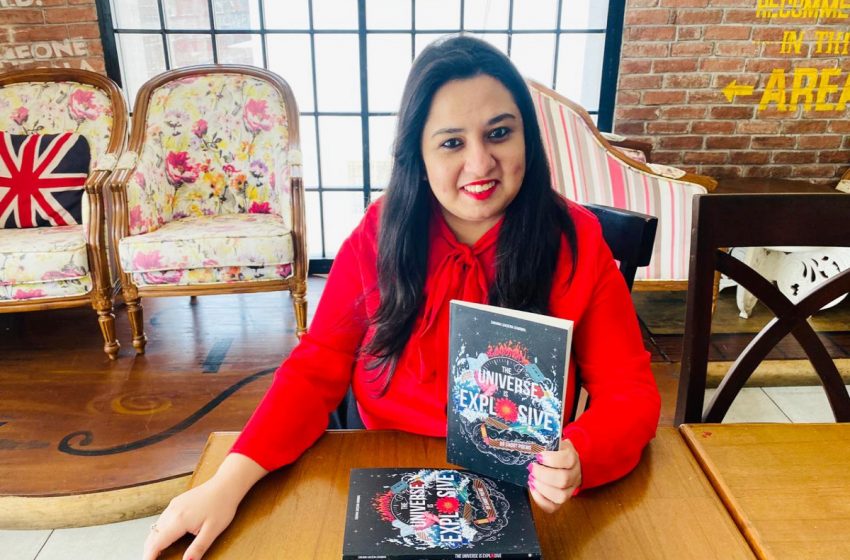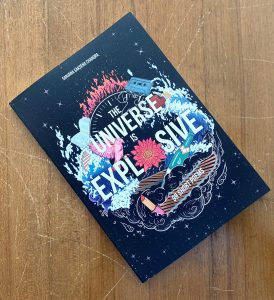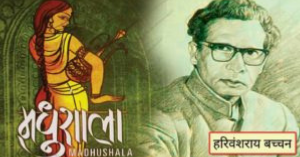Poetry comes from the soul: Sanjana Saksena Chandra

Saurabh Tankha
From lights, fans, keys, lipstick and handbags to metaphysical like love, dreams and death are all a part of Sanjana Saksena Chandra’s new collection of poems in a poetry book titled The Universe is Explosive. Launched digitally yesterday, the book is a collection of 99 short poems, each no longer than eight to 10 lines, which brings out the life lessons that surround us, that are hidden in plain sight.
In a conversation with www.lifeandmore.in, Sanjana says, “The Universe Is Explosive is a collection of poems inspired by everyday items. Things that are so ordinary that we don’t think twice about them. Through these poems, the message I primarily try to give is everything has a deeper meaning if we change the way we look at it. The poems are a tribute to perception. I have deliberately kept the format short. The objects include keys, fans, lights, candles, grocery stores among other more intangible and profound things such as love and death. Each poem is designed to make one think and look beyond the obvious.
What or who was the inspiration behind writing this book?
Many of the poems have been are inspired by objects at home. They all became themes in the book and all of them were born while I was either cooking or cleaning or fixing my cupboard. I have a tendency to overthink and while this is not ideal, it does help when you have an active imagination. The book was already in the works when lockdown began but many of the poems were written, rewritten during it because just being at home and in societal isolation helped me think deeper. My earlier book had long-form poetry based largely on mythology or social issues, this one is entirely different though you might see glimpses of those messages as well.
How and when did writing poetry happen to you?
Growing up, I was surrounded by books and come from a family of voracious readers and thinkers. My dadaji (grandfather) played a huge role in cultivating a habit of reading in all his children and then through my father that came to me. I have vivid memories of listening to bedtime stories from both of them and I think that’s where the love for storytelling came in me. I am a voracious reader and even as a child, there was always a book tucked under my arm. I began writing at the age of nine. Poetry, articles, stories – I wrote everything but was more inclined towards poetry.
I have always found a certain simplicity and beauty in verse as opposed to prose. I think I knew then that I would eventually build a career where writing is core to what I do. I think studying both literature and then working in the field of journalism has definitely contributed to my poetic journey. As part of the English Literature course, I studied poetry across the ages — from Chaucer and Shakespeare to the romantics to contemporary poets. This plethora of knowledge helped me cultivate a style and understand really what poetry is and how it should make a reader feel.
As far as journalism is concerned, we are taught to be hyper-observant. There is always more than meets the eye, and that just gives one a deeper perspective which, in turn, leads to inspiration. It also helps that in both fields, writing and storytelling play a significant role – both of which are essential to good poetry. Though I began my professional career as a journalist before moving to marketing for brands, in the back of my mind I always wanted to become a published poet.
Finally, in early 2019, I was between jobs and had the time on my hands to write, pursue publishers, and finally get my first book launched. Sisyphus is Happy, a collection of 10 poems, was released in May 2019 and now, The Universe Is Explosive has released and I can’t wait to write more.
Any poet who inspired you to write?
Among the Indian poets, Harivansh Rai Bachchan is an all-time favourite. My dadaji introduced me to Madhushala when I was still in school. It continues to have a profound impact on me. I also admire Jeet Thayil, his poems are very sensory. I can visualise the scene he is painting as I read and that is truly amazing. Among international poets, and I’m not even going to refer to the classics, I have followed the works of Charles Bukowski. He’s brilliant in both poetry and prose. The simplicity with which he captures the social and cultural ambience of his times is remarkable.
What is that one thing which is the most important part of a book?
Poetry and storytelling comes from neither the head nor the heart. It comes from the soul. We’ve often heard the phrase – his performance lacked soul or there was no soul in her work and I think what it truly means is that for poems to strike a chord, they need to have a soul which is an amalgamation of head, heart, mind, character. Any content, any story must have soul in it and that comes from a perfect and proportionate balance of plot, characters, ideas, experiences. I think for any book, fiction, non-fiction, poetry to succeed is to have a strong and balanced soul.
The word “creative” to you is…
…freedom. Creativity is beyond boundaries. One need not limit their imagination, thoughts or ideas while being creative.
What does it take to be a good poet?
Poetry, for me, is very personal. It’s a reflection of how I think or perceive a certain theme and so I need to invest in it more emotionally than intellectually. When readers buy a book, they want a story – a beginning, a middle and an end. They want a character or a chronology of events but poetry doesn’t warrant the same expectations. As poets, what we present is our perception of something, our emotions, our thoughts and those might resonate with some and not so much with others but we try to evoke an emotion, any emotion in the reader. Today, though poetry in its traditional form is not widely read, it is prevalent in pop culture. Sloganeering, songs even rap are all poetry in their own right and that is the brilliance of this format, there are no rules and no limitations to what you can do with the words.
Future plans…
Right now, I’m focussing on bringing this book to the readers in as many ways as possible. I’m also working on a fiction novel which I have been researching and developing for around a year now. Hopefully, I’ll be able to finish that soon and initiate the process of getting it published. I’m also keen on influencing children to read more and help them develop creative writing skills so I’m in discussions to see how that initiative can be taken forward.



